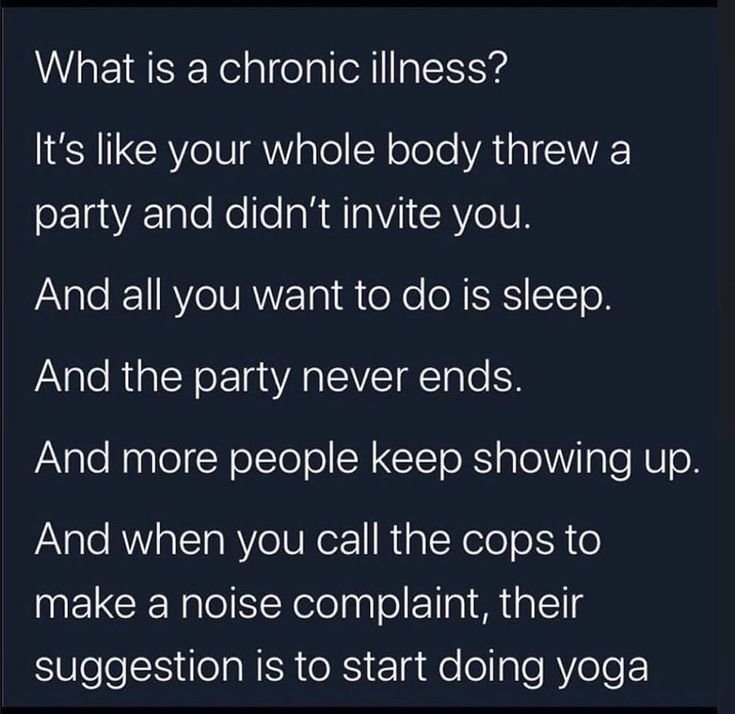Navigating the Complex World of Chronic Illness:
Understanding chronic illness
Chronic illness affects millions worldwide, yet it's often misunderstood. In this post, we'll unravel the complexities. Let's shed light on the realities of living with a chronic condition.
Understanding chronic illness is crucial for managing long-term health conditions. It involves recognizing symptoms, adhering to treatment plans, and making necessary lifestyle adjustments. Support from healthcare providers and loved ones can also play a significant role in coping with the challenges that come with chronic illness. Developing a holistic approach that addresses physical, emotional, and mental well-being is key to improving quality of life for individuals living with chronic conditions.
My new Best friend
I view my chronic illness as a newfound companion, albeit with a darker side that can catch you off guard. Embracing this relationship, I've learned to accept my constant companion, which I've personified as my endo Freddy Kruger and my chronic illness as the devil. Together, they are always scheming and stirring up trouble.
Chronic illness. Two words that can turn one's world upside down in an instant. Whether you or a loved one have been diagnosed with a chronic condition, the journey ahead can feel daunting and overwhelming. But fear not, for understanding chronic illness is the first step towards managing it effectively and living a fulfilling life despite its challenges.
What excatly is Chronic Illness?
Chronic illness refers to a long-term condition that persists for months or even years, often causing significant impact on one's daily life. Unlike acute illnesses that come and go relatively quickly, chronic illnesses require ongoing management and treatment to control symptoms and prevent complications.
Chronic illness appears different to each individual, and everyone's experience with chronic illness is unique. It's crucial not to compare one person's journey to another's. Some manage exceptionally well, while others face challenges, and some simply navigate life the best way they know how.
Dealing with a chronic illness involves experiencing various symptoms and limitations, requiring careful management to make the most out of life.
Chronic Illnesses is my new best friend
My closest friend came into my life in 2003, shortly after the birth of my second daughter. Dealing with overwhelming symptoms like periods, bleeding, and unbearable pain while raising two young girls prompted me to seek answers. The diagnosis of endometriosis in 2003 was followed by an underactive thyroid in 2006 and in 2017 chronic fatigue, fibromyalgia, gastritis, silent reflux, IBS, and sleep apnea. These diagnoses came one after another, leaving me feeling like each visit to the doctor unveiled a new challenge. Feeling overwhelmed by the complexity of my health issues, I had to learn to navigate each condition, leading to a complete overhaul of my lifestyle.
Living with chronic illness and the impact
Living with a chronic illness can have a profound impact on all aspects of life, including physical, emotional, and social well-being. From managing symptoms and medications to coping with the emotional toll of a chronic condition, the challenges can feel insurmountable at times.
Being a mother to two children while in a challenging relationship was extremely difficult, and its impact was significant. The strain was not only from the relationship itself but also from my struggle to balance being a partner while lacking personal energy. As a mother, I never imagined my daughter having to assist me off the floor, help me to shower, and care for her younger brother – tasks no child should bear. Some days, my insistence on handling everything alone was not the best solution. I began missing out on my children's sports games due to my lack of energy and just in pain day in day out.
The effect on your mental well-being can be overwhelming. Dealing with mood swings, erratic hormones, and navigating days where simply getting out of bed is a challenge can take a toll. Everything feels painful, eating becomes a struggle, and it seems like people vanish because they don't comprehend the situation. These factors can greatly impact your mindset, leading to negative thoughts like feeling burdensome or unsure of how life should unfold.
The impact is significant, and it varies for each individual. While some can lead independent lives, others may require assistance. Some rely on medication, while others face fewer limitations.
My Coping Strategies
While living with a chronic illness can be challenging, there are strategies that can help individuals cope and improve their quality of life:
Education: Learn as much as you can about your condition to empower yourself and make informed decisions.
Self-care: Prioritize self-care activities such as exercise, healthy eating, and stress management.
Support: Seek support from healthcare providers,
When you finally figure out how to cope and manage chronic illness is the biggest peice of the puzzle. I have spent some time on a self discovery journay and with that came coming to terms woth living with chronic illness and i knew i was not going to let it beat me and it was time to take my life in some crazy way.
I have gained knowledge about my illness, its symptoms, and how factors like food, stress, and emotions can contribute to or intensify these symptoms. I have also learned to accept them.
I made significant changes to my diet by educating myself on the foods I consume. I identified foods that are not beneficial for me or should be consumed in moderation. I explored plant-based and whole food options, and began preparing fresh, simple meals.
I began exploring alternative methods to address various illnesses by incorporating practices such as yoga, meditation, and healing techniques like mirimiri massage. Additionally, I initiated physiotherapy sessions.
I learned to slow down, observe my surroundings, reconnect with nature, and this experience taught me to appreciate and feel grateful.
Finding a purpose and a reason to get up everyday







